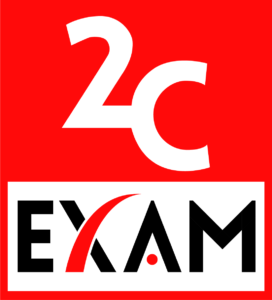According to the SFC Code of Conduct for Licensed Persons or Registered Persons regarding employee trading: licensed corporations/registered institutions (hereinafter referred to as companies) need to establish policies and inform employees in writing whether they are allowed to engage in personal trading in stocks, futures contracts, or leveraged foreign exchange contracts.
If the company allows employees to engage in personal trading or purchase securities, futures contracts, or leveraged foreign exchange trading contracts, the following is required:
Written policy outlining the conditions that employees must comply with when engaging in personal trading;
Employees must report all relevant accounts to management, including accounts of minor children and accounts in which the employee has a beneficial interest;
Generally, employees should conduct personal trading through their employer’s company or its affiliated companies;
If employees are allowed to trade personally through other brokers, copies of trade confirmations and account statements must be provided to company management;
Employee accounts and related accounts transactions must be recorded separately and clearly identified in the company’s records;
Management with no conflict of interest must supervise and review employee trading to prevent misconduct and ensure that it does not harm the interests of other clients.
In addition, a company may not knowingly trade securities or futures contracts for employees of another company unless it has obtained written consent from the other company.
Therefore, whether employees of Hong Kong licensed corporations/registered institutions can trade stocks mainly depends on whether their own company allows it, that is, the boss has the final say.
If allowed, it is not an immediate green light for trading stocks happily; employees still need to follow the company’s internal regulations. What internal regulations are usually in place?
Trade declaration and approval: Declare to the employer before making any transaction, and in some cases, obtain written approval from the company’s compliance department or supervisor before trading. This typically includes providing details about the securities, quantity, and price of the proposed transaction to ensure that the company understands the employee’s trading activity and prevents potential insider trading or conflicts of interest.
So, want to make a fortune in the stock market? Don’t forget to report to your boss first and get approval! Also, don’t hide your and your family’s trading activities!
Trading window periods: Trade within so-called “trading window periods.” These window periods typically begin after the company releases financial reports or other significant information to ensure that employees do not trade based on internal information.
So, have you heard any internal secrets? Don’t get excited! Never trade using this information; it is strictly forbidden!
Minimum holding period: Follow a minimum holding period, such as 30 or 60 days. This helps prevent employees from engaging in short-term trading based on internal information.
Bought stocks and want to sell them quickly? Don’t rush, take your time! Wait for 30 or 60 days before taking action.
Blacklist/restricted list: Prohibit or restrict trading in certain companies’ stocks, especially those related to the employer or clients. This helps prevent potential conflicts of interest and insider trading. Some stocks are off-limits; don’t touch them! Company resources are not for you to trade stocks with, and your trading activities must not affect the interests of the company and its clients; this is the bottom line!
Now, for a bonus question: if Xiao Mei is an employee of a Hong Kong asset management company, can she trade stocks? If so, what restrictions would apply?
-Xiao Mei may need to disclose and obtain approval from the company before engaging in personal trading.
-Xiao Mei may be prohibited from trading stocks held by the funds managed by the company to avoid conflicts of interest.
-Xiao Mei may need to follow a minimum holding period, such as 30 or 60 days, to prevent short-term trading.
-If Xiao Mei obtains non-public information about a company, she should comply with insider trading regulations and avoid trading while in possession of such information.
How can we help?
2CExam provides HKSI LE, IIQE, EAQE and SQE related exam preparation materials. We sell mock question banks for HKSI LE Papers 1, 2, 3, 5, 6, 7, 8, 9, 12 in Chinese and English; and bibles for HKSI LE Papers 1, 2, 6, 7, 8 in Chinese. We also offer 1 on 1 tutorial services. Besides, we have also made free tutorial videos for HKSI LE Papers 1, 2, 6, 7, 8, 12 and posted on public channels such as Youtube/ Bilibili/ Tencent/ Iqiyi. 2CExam has been an exam training expert for years. Should you need any help please visit www.2cexam.com or contact us through:
Phone +852 2110 9644 Email: [email protected] Wechat: hk2cexam WhatsApp: +852 9347 2064
Please support us by leaving comments and likes if you think this article helps you!
You can scan or click on the QR codes to visit our social media.
Latest Article
Categories
過往文章
Contact US
-
Phone:
+852 2110 9644
-
Email:
-
WhatsApp
+852 9347 2064
-
WeChat
hk2cexam
Interesting Articles
Is the IIQE paper based exam or computer based exam easier? Which exam is better to partake in?
Many people are curious about the differences between the IIQE’s computer-based exam and the paper-based exam. As per the two exams’ content, they are pretty much identical. The two exams use the same Study Guide, the exam questions are drawn in the same question bank. Some people say that they have taken a…
Is the HKSI paper-based exam or the computer-based exam easier? Which is better to partake in?
Many people are curious about the differences between the HKSI LE’s computer-based exam and the paper-based exam. As per the two exams’ content, they are pretty much identical. The two exams use the same Study Guide, the exam questions are drawn in the same question bank. Some people say that they have taken…
What are the differences between a computer-based and paper-based exam for the Estate Agents / Salespersons Qualifying Examinations?
There are differences between the computer-based exam and the paper-based exam? Some people say that the computer-based exam / paper-based exam will be easier? Many people are curious about the differences between the EAQE/SQE’s computer- based exam and the paper- based exam. As per the two exams’ content, they are pretty much…
What is the difference between the computer-based exam and the paper-based exam of the Insurance Intermediaries Qualifying Examination
Many people are curious about the difference between the IIQE’s computer-based exam and the paper-based exam. First of all, IIQE does not hold many paper-based examinations. In many cases, it will only hold paper-based examinations for Paper 1. If you have special needs, such as not being proficient with computers, or having a vision…
What are the differences between the computer-based exam and the paper-based exam of the Licensing Examination for Securities and Futures Intermediaries (LE)?
There are differences between the computer-based exam and the paper-based exam? Some people say that the computer-based exam / paper-based exam will be easier? Many people are curious about the differences between the HKSI LE’s computer-based exam and the paper-based exam. First of all, HKSI does not hold many paper-based examinations. In many…
Which Licensing Examination for Securities and Futures Intermediaries exam paper should I partake in?
If you want to work in the front line of the securities industry, you have a good chance of needing to take The Licensing Examination for Securities and Futures Intermediaries. As for what test papers you need to take, first of all, you need to know that the number of the exam paper has…
If I have an overseas professional qualification, can I obtain a SFC securities license simply by recognising my prior qualification
Some students have worked in the securities finance industry outside of Hong Kong, and now they also need to obtain a securities business license in Hong Kong. Can work experience in the securities industry abroad help you waive the exam and allows a candidate to directly apply for the securities license from the Securities…
In order to obtain exemption from the HKSI LE exam or SFC’s academic requirement, how is relevant industry experience considered?
After reading the “Competency Guidelines” issued by the Securities Regulatory Commission, some students may have a big question mark on “Relevant Industry Experience”, “have X years of experience in the past X years”, and then ask us what kind of experience are counted as industry experience so they can be exempted from the Licensing Examination…
Which insurance intermediary qualifying examination paper should I take?
If you want to work in the front line of the insurance industry, you have a good chance of needing to take the Insurance Intermediaries Qualifying Examination (IIQE). As for what exam papers you need to take, first you can check whether you meet certain conditions to be exempted from specific exam paper combinations…
The difference between IA Responsible Officer(RO) and technical representative (TR)
Regulatory Organisation Before explaining the difference between Responsible Officer and Technical Representative, you must first know that there is only one regulatory agency that regulates companies engaging in insurance business: the Insurance Authority (IA). All the powers concerning licensing matters, supervision tasks, sanctions and investigations of intermediaries of insurance intermediaries, insurance companies and insurance…







